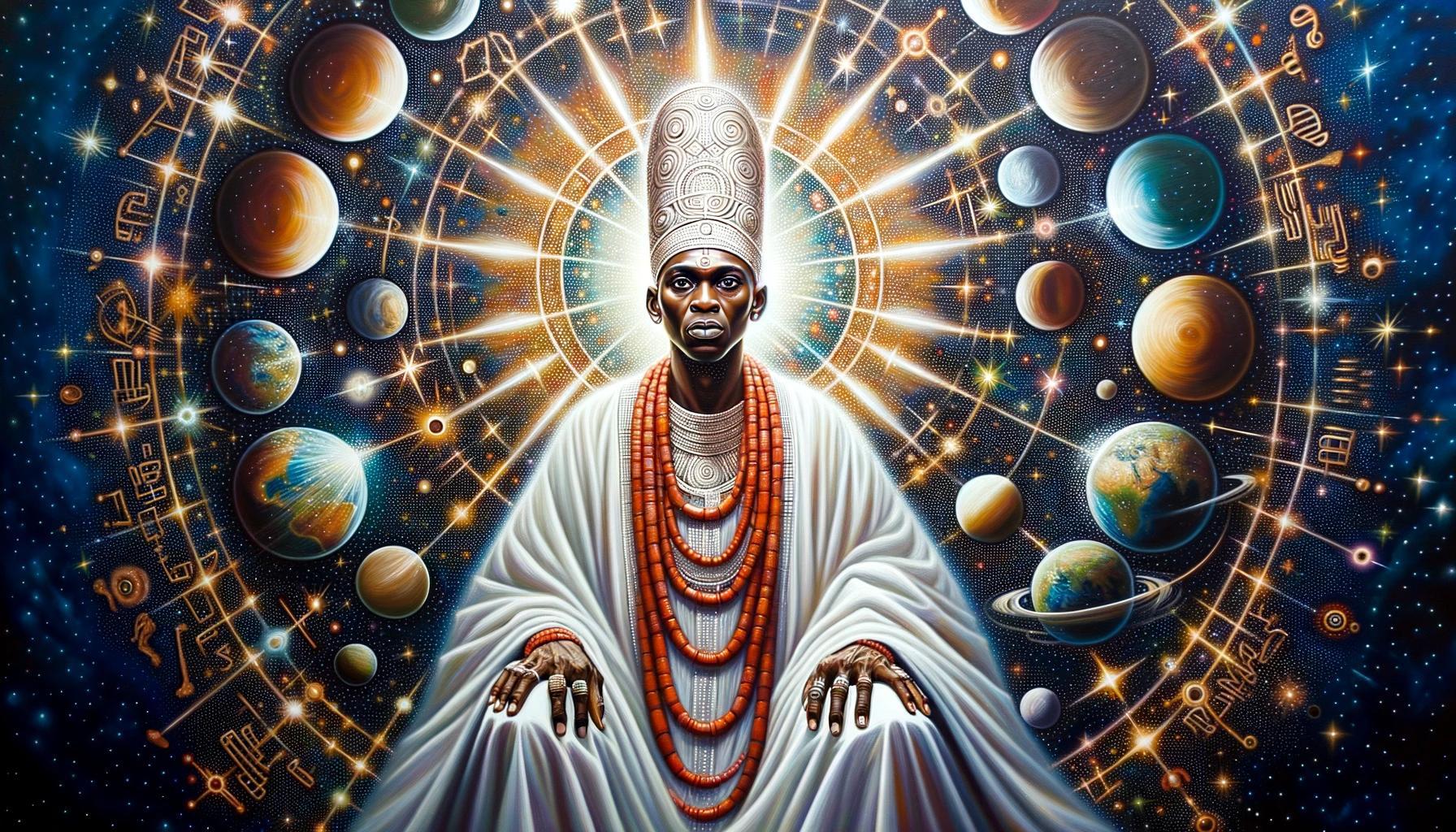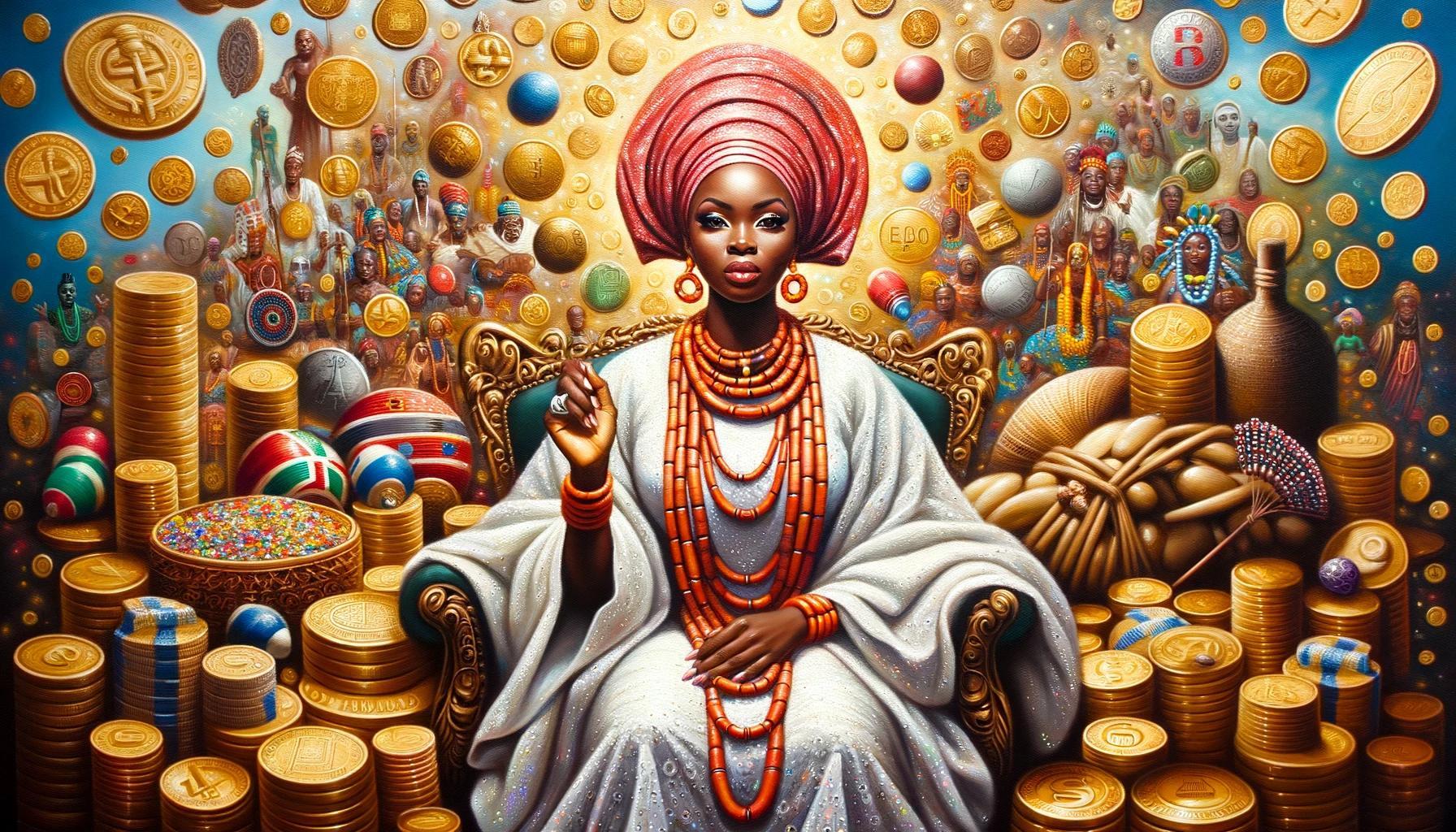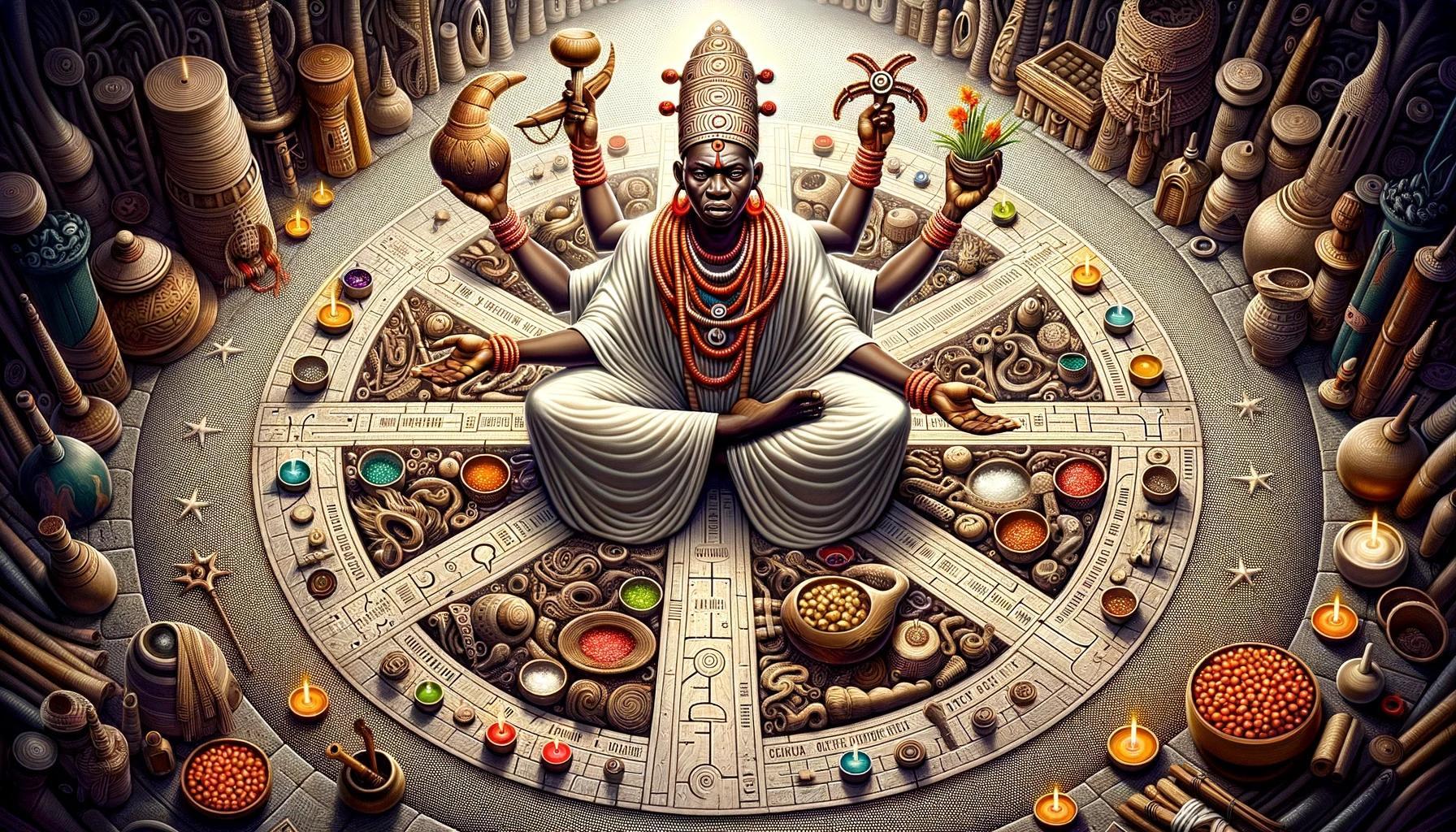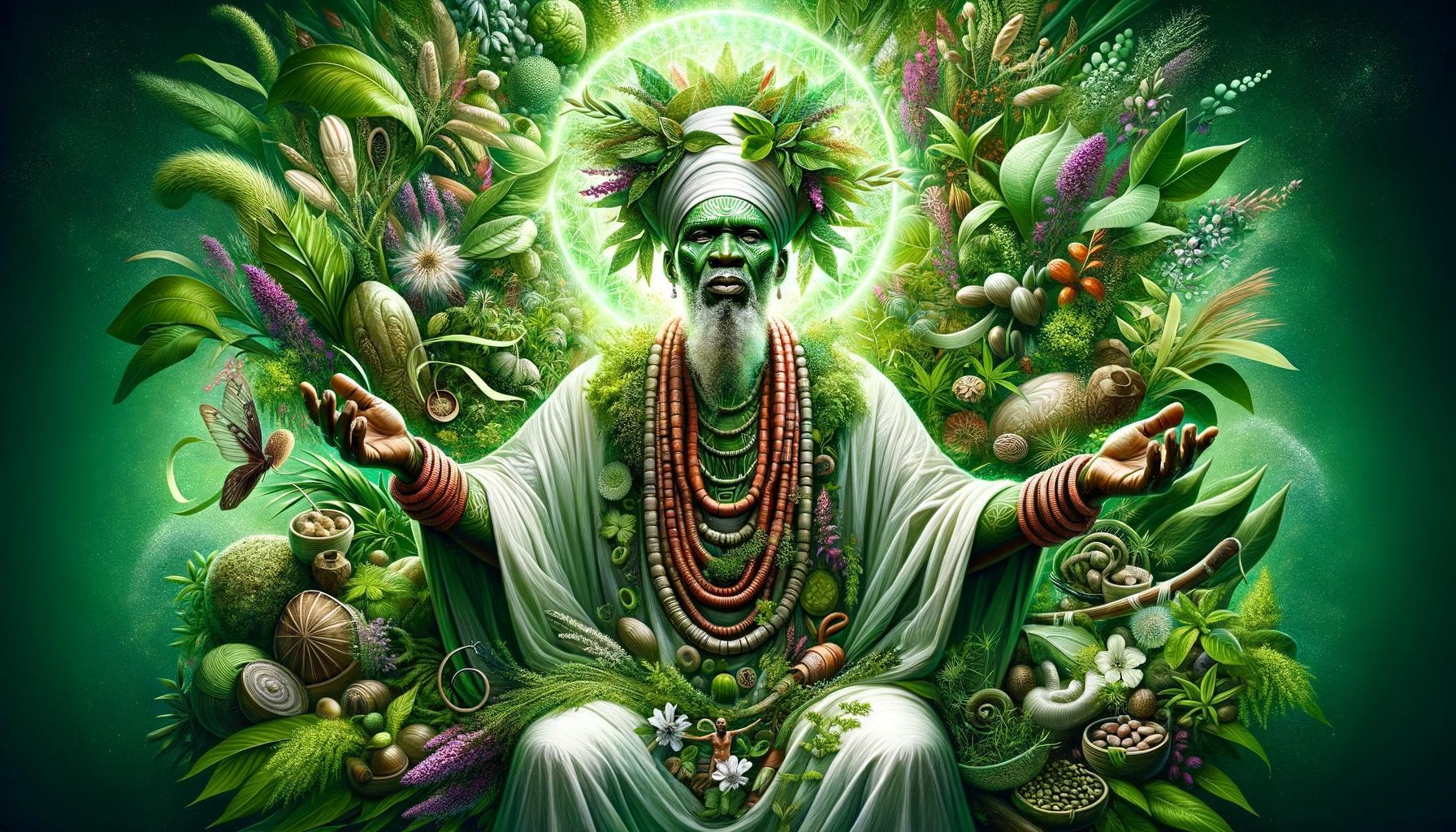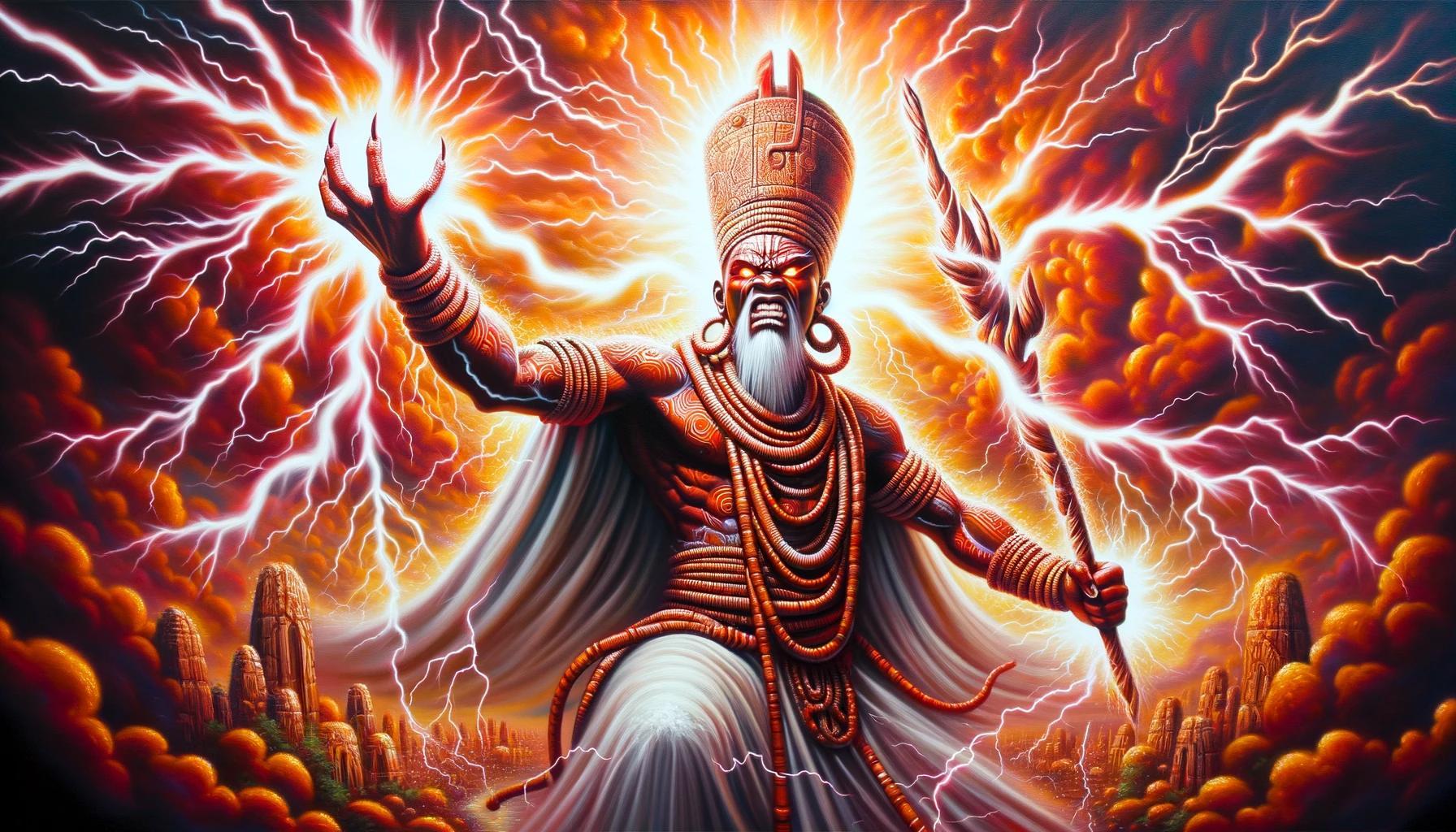‘Yoruba Gods and Goddesses: Exploring the Divine Pantheon of Yoruba Mythology’
Yoruba gods and goddesses play vital roles in Yoruba mythology. Olorun is the supreme creator deity responsible for all in the world, while Obatalá is the god of fertility and creator of humanity.
Oshun is the goddess of love and beauty, while Shango reigns as the god of thunder. These divine ancestors are revered in the Yoruba community, with Obatalá also being recognized as a mortal king in ancient Ife.
In Santería, Obatalá holds significance and is associated with purity, peace, and healing. Additionally, Yoruba mythology encompasses other deities, oracle consultations, the Egun cult, and animals of religious importance.
Yoruba Mythology
In Yoruba mythology, a rich tapestry of gods and goddesses exists, each playing significant roles within the community. The pantheon includes major deities like Olorun, the supreme creator responsible for all in the world, and Obatalá, the god of fertility.
Other notable deities mentioned are Oshun, the goddess of love and beauty, and Shango, the god of thunder. These gods and goddesses are considered divinized ancestors, and every Yoruba is believed to descend from one of them.
List of Yoruba Gods and Goddesses
Overview of Yoruba Gods and Goddesses
The Yoruba pantheon consists of a diverse array of gods and goddesses, each with their own unique attributes and origins. Olorun, the supreme deity, holds ultimate power and responsibility for the creation and maintenance of the world.
Obatalá, as the god of creation, played a pivotal role in shaping the Earth and forming humanity. Oshun represents the embodiment of love, beauty, and fertility, while Shango controls the forces of thunder, lightning, and justice.
These deities, along with various minor spirits, form a complex religious cosmology and belief system.
Importance of Yoruba Mythology in the Yoruba Community
Yoruba mythology holds immense significance within the Yoruba community. It serves as a framework for understanding the world, its origins, and the interplay between humans and the divine. The gods and goddesses are revered figures, guiding and influencing various aspects of life, such as fertility, love, and justice.
Rituals, ceremonies, and offerings are performed to seek their blessings and guidance. Additionally, the mythology reinforces the cultural identity and ancestral heritage of the Yoruba people, providing a sense of collective belonging and shared history.
The enduring presence of Yoruba mythology in the community is evident in the continued worship, rituals, and beliefs passed down through generations. Yoruba mythology serves as a source of spiritual solace, cultural pride, and communal cohesion for the Yoruba people, reinforcing their connection to their ancestral roots.
In summary, Yoruba mythology encompasses a diverse pantheon of gods and goddesses that play vital roles in the community. It provides a framework for understanding the world and serves as a source of spiritual guidance and cultural identity for the Yoruba people.
Yoruba Gods
In Yoruba mythology, the pantheon of gods and goddesses holds a significant role in the spiritual beliefs and practices of the Yoruba community. Let’s explore some of the prominent deities within Yoruba mythology:
Olorun: The Supreme Creator Deity
Olorun, the supreme god of Yoruba mythology, is revered as the ultimate creator responsible for everything in the world.
Often associated with the sky and celestial forces, Olorun is considered the source of life and the divine ruler of the cosmos.
Obatalá: The God of Creation and Protector of People with Disabilities
Obatalá plays a crucial role in Yoruba mythology as the god of creation and the protector of individuals with disabilities. According to the Yoruba tales, Obatalá was entrusted by Olodumare, the supreme being, to create the Earth and humanity.
Despite failing to complete the task due to intoxication, Obatalá managed to create humans with the assistance of Osun. However, some individuals born from this creation process presented disabilities, and Obatalá vowed to never drink again, assuming the role of protecting those with disabilities.
Oshun: The Goddess of Love and Beauty
Oshun holds an essential place in Yoruba mythology as the goddess of love, beauty, and fertility. Revered for her feminine power and charm, Oshun is associated with rivers, pleasure, and artistic pursuits.
She is often depicted as elegant, adorned with jewelry, and carrying a fan, representing her role in bringing joy and sensuality to the world.
Shango: The God of Thunder and King of the Yoruba
Shango is a significant deity in Yoruba mythology, embodying the power of thunder, lightning, fire, and justice. He is often depicted with a double-axe symbolizing his control over thunderstorms. Shango is also recognized as a legendary king of the Yoruba people, ruling in ancient times.
His vibrant energy and authoritative nature make him a revered figure within the pantheon of Yoruba gods.
These Yoruba gods and goddesses, with their unique attributes and roles, shape the spiritual and cultural identity of the Yoruba people. Their stories, rituals, and worship practices continue to be passed down through generations, fostering a deep connection between the Yoruba community and their divine ancestors.
Obatalá in Yoruba Mythology
Obatalá, a prominent deity in Yoruba mythology, plays crucial roles in various aspects of Yoruba cosmology. This section explores Obatalá’s significant contributions to the creation of the Earth and humanity, his distinguished kingship and the struggle he faced with Oduduwa, as well as his profound significance in Santería and worship practices.
Obatalá’s Role in Creating the Earth and Humanity
Obatalá was tasked by Olodumare, the supreme being, with the responsibility of crafting the Earth. However, due to his intoxication, Obatalá was unable to complete the task successfully. Despite the setback, Obatalá, with the assistance of Osun, managed to create human beings.
Regrettably, some of the creations exhibited disabilities as a consequence of Obatalá’s inebriation. In recognition of this, Obatalá vowed to abstain from drinking and became the protector of individuals with disabilities.
Obatalá’s Kingship and Struggle with Oduduwa
In addition to his role in creation, Obatalá also holds the distinction of being a mortal king within the Yoruba pantheon. According to oral traditions, Obatalá served as the founder and ruler of Ife during its classical period and had a tumultuous encounter with Oduduwa in claiming his rightful throne.
Obatalá’s Significance in Santería and Worship Practices
Santería, an Afro-American religion, venerates Obatalá as one of the principal Orishas. He is associated with purity, peace, and healing. Followers of Santería engage in rituals and make offerings to seek Obatalá’s blessings and guidance.
Obatalá’s revered status in Yoruba mythology, his pivotal role in creation, his kingship, and his significance in Santería make him a revered deity within the Yoruba community. His legends and worship practices continue to shape the spiritual beliefs and rituals of the Yoruba people in the present day.
Other Deities and Practices in Yoruba Mythology
In addition to the major gods and goddesses in Yoruba mythology, there are also numerous minor deities that hold significance in the Yoruba pantheon. These deities have their own unique roles and attributes, contributing to the diverse spiritual landscape of the Yoruba community.
Minor Deities in the Yoruba Pantheon
- Ogún: The god of iron, war, and technology, Ogún is associated with the tools and weapons of warriors and blacksmiths. He represents strength, determination, and the transformative power of metallurgy.
- Oya: As the goddess of winds, storms, and the marketplace, Oya is a powerful deity associated with change and transition.She governs the realm between life and death and is known for her fierce protection.
- Yemoja: Yemoja is the goddess of the ocean, maternal love, and fertility. She is revered as the mother of all Orishas and is believed to bless individuals with abundance, healing, and protection.
Ifa Oracle Consultations and Divination Practices
In Yoruba culture, the Ifa oracle is a vital tool for seeking guidance and divining the future.
Ifa priests, known as babalawo, are trained in the art of interpreting the Ifa divination system. Through the consultation of Ifa, individuals can gain insight into various aspects of their lives, such as relationships, health, career, and spiritual matters.
Egun: The Cult of Ancestor Worship
The Yoruba people hold a deep reverence for their ancestors, believing that they have the power to influence the lives of their descendants. The Egun cult involves honoring and communicating with the spirits of deceased family members.
Ceremonies and rituals are conducted to show respect and seek guidance from the ancestors, often accompanied by the use of masks to represent the spirits.
Animals of Significance in Yoruba Religion
Animals play a significant role in Yoruba religious practices and are believed to possess spiritual qualities. Some of the animals that hold importance in Yoruba religion include:
- Serpents: Symbolizing wisdom, transformation, and divination, serpents are regarded as powerful beings in Yoruba mythology.
- Birds: Birds such as the parrot and the vulture are associated with specific Orishas and are considered messengers between the physical and spiritual realms.
- Turtles: Turtles are seen as sacred creatures in Yoruba religion, representing longevity, wisdom, and protection.
These animals are often incorporated into rituals, symbolism, and artworks, serving as conduits for spiritual energies and connections with the divine.

